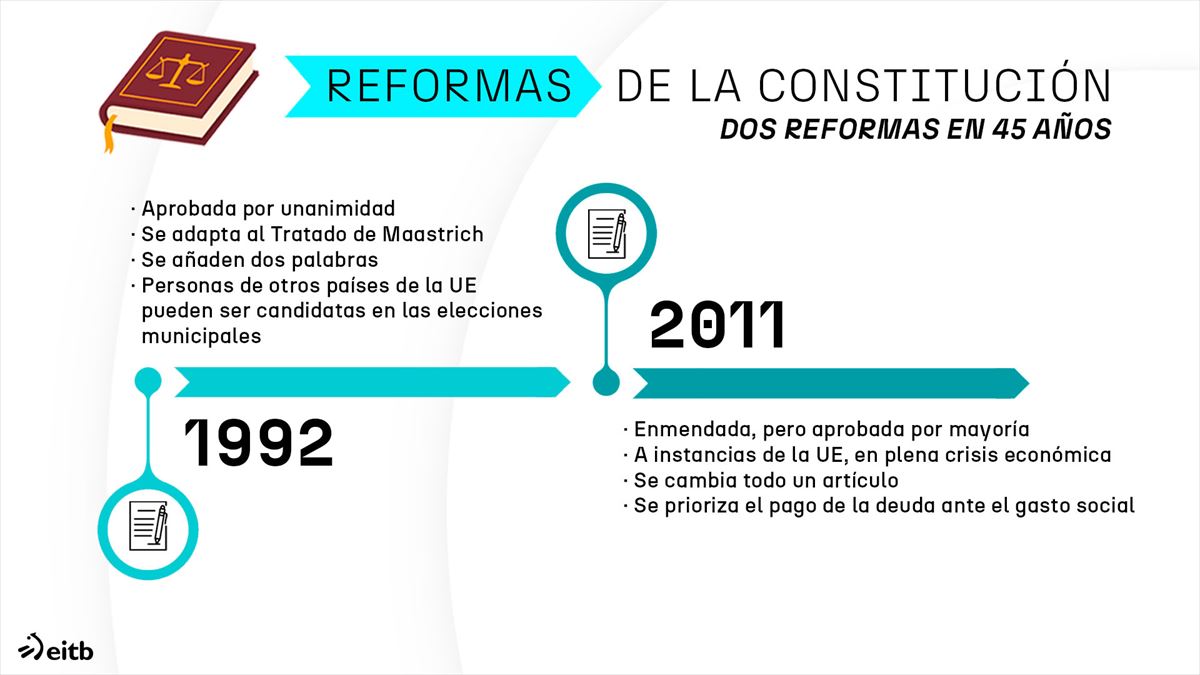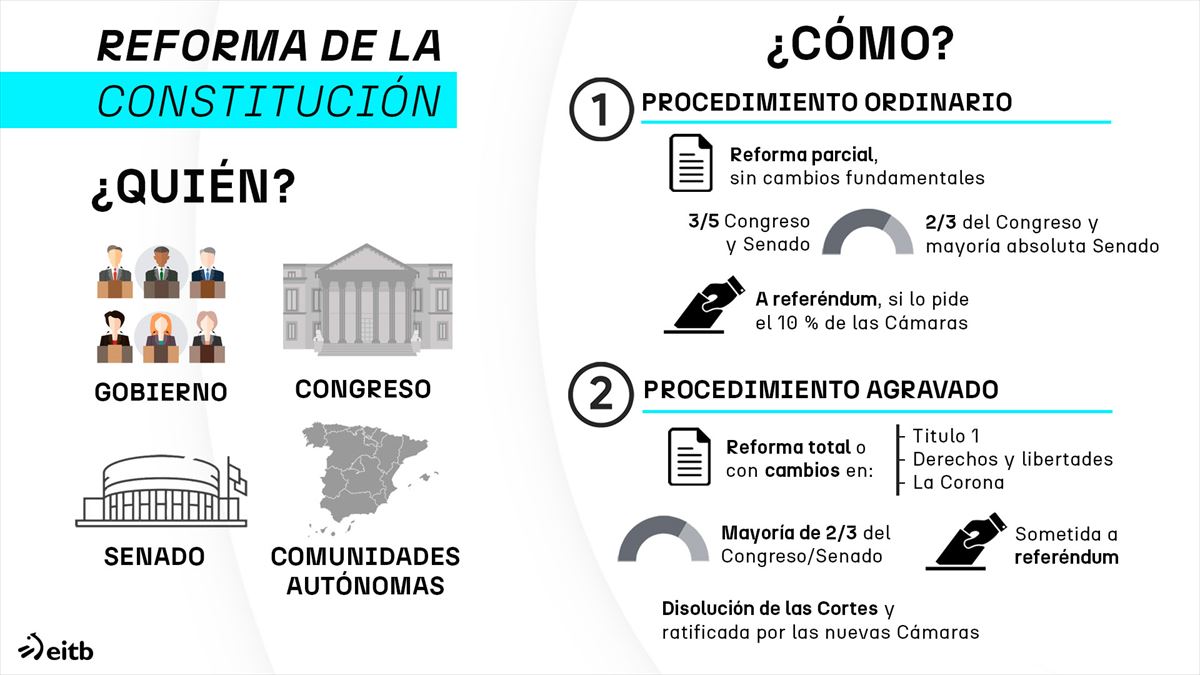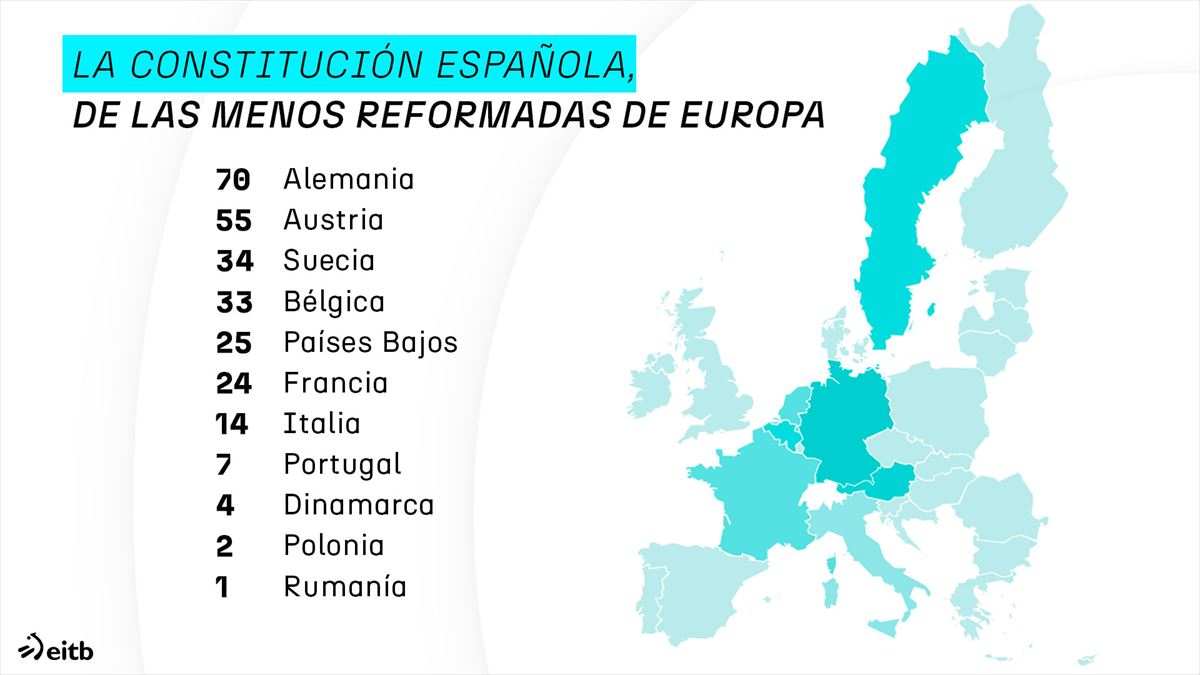In 1992, there was minimal push to adapt it to the Maastricht Treaty, and in 2011, in the middle of the economic crisis, an entire article was amended. The Spanish state is almost a ‘rare bird’ in Europe, as most countries experience dozens of changes.
Eider duck Garaikoetxea O. | EITB media
The Congress of Deputies has initiated the procedures for this change an article (49) of the Spanish Constitution in an attempt to make the text more inclusive: it aims to replace the term ‘disabled’ with ‘people with disabilities’. If the reform becomes a reality, it would be third who experiences the Magna Carta in its 45-year history.
Although numerous attempts at reform have been made, a procedure nothing flexible and big majority required means there is only two backgrounds: the first in 1992 and the second in 2011. Coincidentally, the only two changes that have been made have been under a socialist mandate and both at the request of the European Union.

The first reform, two words in Article 13.2
The year was running 1992the Dutch city of Maastricht hosted the signing of the Treaty of the European Union, later known as the Maastricht Treaty. The standard introduced the concept of “European citizenship”, which recognized certain rights in the member states. People living in the Spanish state and coming from other countries of the community had, among other things, the right to vote and vote for them in municipal elections.
However, Article 13.2 of the Spanish Constitution only recognized active suffrage (EU foreigners could not be candidates), so only the words “and passive” needed to be added to the text.
The reform, which was implemented through the normal procedure, received the support of all parliamentary groups in both Congress and the Senate, and went into effect in August, eight months after the proceedings began.
The second, more controversial and debated
It took almost twenty years before the Magna Carta was reformed for the second time. In 2011During José Luis Rodríguez Zapatero’s second term, the change was more drastic and was criticized by the opposition and social actors, and contested on the streets.
The Spanish state was at the time suffering from the attacks of the severe and prolonged economic crisis of 2008. Faced with Brussels’ demands to guarantee the payment of the debts of the various Member States, PSOE, PP and UPN agreed to implement reforms article 135 of the Constitution. The aim was to give this payment priority over other items in the budgets.
The other groups submitted more than twenty amendments, which were rejected. The ‘explicit’ reform, introduced in mid-August, came into effect within a month.
Two paths to reform

The context in which the Magna Carta was drawn up, after forty years of dictatorship, has determined the lack of flexibility in the reforms. The standard states this explicitly No can be changed therein war context or under alarm or exception conditions.
From there, the reforms must reach broad consensus majority of 2/3 or 3/5 of the two Houses, as the case may be.
Two reform paths are mapped out, depending on the type of changes one wants to implement: normal, for minimal or partial changes. The other, called “proceeding worsened“, is reserved for reforms that involve a total overhaul or that touch on fundamental issues. That is, reforms that affect the unity of the nation, its official languages, fundamental rights or the Crown itself. In both cases, the Constitution states that the amendment may be subject to a referendum, which is mandatory in the case of the enhanced procedure.
Spain, at the end of constitutional reforms in Europe
These just two changes make the Spanish state one of the European countries least likely to reform. Germanywith seventy reforms implemented since 1949, or Austria, with one of the oldest constitutions in Europe and 55 amendments, tops the rankings. At the other extreme, Spain is only being surpassed Romaniawhich has made only one change since its adoption (1949).

Source: EITB
I am Ida Scott, a journalist and content author with a passion for uncovering the truth. I have been writing professionally for Today Times Live since 2020 and specialize in political news. My career began when I was just 17; I had already developed a knack for research and an eye for detail which made me stand out from my peers.



